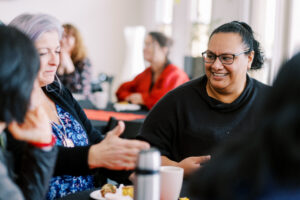At a family birthday in Canberra recently, I met a young adult who came to Australia as a refugee child in the late 1980s. Having survived systematic state terrorism (a horrific civil war in Central America), this man, now in his late 20s, shared that he still has occasional nightmares about what he witnessed. He also finds it difficult to form relationships and struggles to adjust to life as an adult.
His story illustrates the far-reaching impact of refugee trauma. It can affect all areas in a young person’s life: thoughts, feelings, the capacity to be socially engaged, the ability to learn, and future moral development. It can be overwhelming for the survivor and very challenging work for us doing the task of listening, supporting and helping the person to grieve and to trust.
Systematic State Terrorism involves terrorising the whole population through systematic actions carried out by the state, such as the military and security forces. This was the context in which the young man now settled in Canberra grew up. The state harassed, pressured, labelled and morally discredited his population group, while randomly carrying out events such as mass executions, disappearances, spectacular raids and torture. The goal was to keep the population in a state of fear, disconnected from each other, unable to organise any opposition to the regime, and with no alternative but to comply with the imposed political options.
As Christians, we are struck by the enormous differences between these kinds of oppressive, controlling regimes and the Kingdom of the God we serve. Compare God’s character and rule to that of the terrorist and terrorist group:
The terrorist group keeps the population in a state of fear. In contrast, God gives us freedom from fear and brings us into the kingdom of the son of his love (Colossians 1:13)
The terrorist seeks to disconnect us from each other – God, on the other hand, has given us the gift of reconciliation – back to Him and to each other (2 Cor 5:18-19)
Terrorism seeks to render us unable to organise any opposition to the regime – through our church family, God gives us unity and power to pray for each other, including against the attacks of the enemy (Eph 6:11)
The terrorist gives no alternative but to comply. God does not demand our worship but invites us to the freedom of abundant life in Him (John 10:10). “The thief comes only to steal and kill and destroy; I have come that they may have life, and have it to the full.”
Much has been written to help guide our clinical work with traumatised refugee clients. I make use of these resources often, but in doing so I try to remember that what clients most need is a reparative experience: the chance to experience safety, trust and acceptance (something most of us take for granted but sadly, is uncommon for those who are fleeing persecution).
I also remember that Jesus Himself was a refugee, and has provided for us a model for suffering (incidentally, many refugees resonate with the story of Jesus, identifying with his lacking ‘a place to lay his head’ (Matt 8:20). This identifying can be healing. Clients suffer now, as Jesus did, and like all of us do in different ways. What unites us is our hope for a sure redemption. Or, as Job puts it: ‘I know that my Redeemer lives and that he will stand upon the earth at last. He will be on my side! Yes, I will see him, not as a stranger, but as a friend. What a glorious hope’ (Job 19:25-27).
By Max Schneider
Manager, Innovation and Development
Cred. GradCert Psyc&Couns; GradCertChildMentalHealth; AdvDipCFT; CertIVAssWT; BAComms
Sources:
Bible Gateway – NIV Bible Version – www.biblegateway.com








Have you thought about becoming a qualified counsellor? It’s a great opportunity to learn how you can extend God's love and grace to the hurting out in the community.
For those who would like to enrol in aifc’s accredited Christian counselling courses we have two intakes per year for courses commencing around the following months:
Enrolment Season - opens approximately 2 months prior to our courses commencing. Enrol online here during our enrolment season.
We also offer two modes of study:
A Master of Counselling course was introduced in 2018.